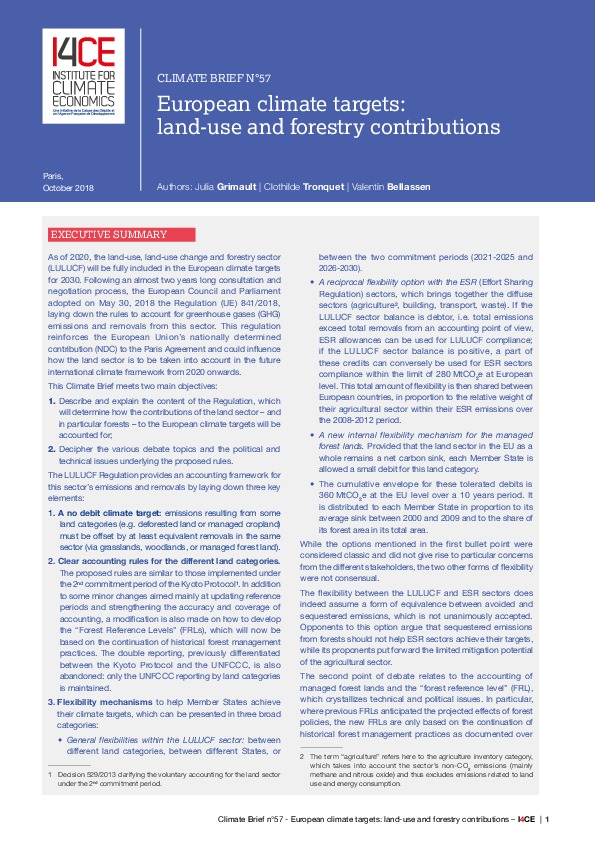European climate targets: land-use and forestry contributions
Carbon sequestration in biomass and soils is essential to achieve carbon neutrality targets by 2050. It is therefore important that is sector is properly taken into account in countries’ climate objectives.
As of 2020, the land-use, land-use change and forestry sector (LULUCF) will be fully included in the European climate targets for 2030.
Following an almost two years long consultation and negotiation process, the European Council and Parliament adopted on 30 May 2018 the Regulation (UE) 841/2018, laying down the rules to account for greenhouse gases (GHG) emissions and removals from this sector. This regulation reinforces the European Union’s nationally determined contribution (NDC) to the Paris Agreement and could influence how the land
This Climate Point answers two major questions :
1) What is the content of this Regulation that will determine how the contributions of the land sector – and in particular forests – to the European climate targets will be accounted for?
2) What are the different topics of debate and what are the political and technical issues underlying the proposed rules?
The flexibility mechanisms and modalities for taking into account managed forest lands are at the core of the issues at stake in this Regulation, which reflects the ambiguities of the contribution of the forest sector to climate change mitigation.
On the one hand, this sector allows for CO2 removals by maintaining and strengthening carbon sinks, but it also generates emission reductions in other sectors through the use of harvested wood products as a substitute for fossil fuels and more energy-intensive materials.

